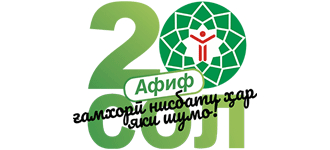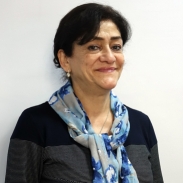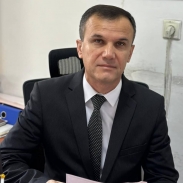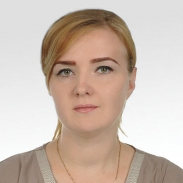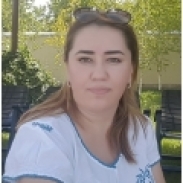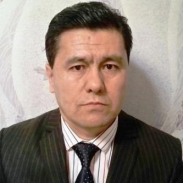Success stories
 | HAITALI’S SECOND CHANCE How a tuberculosis screening saved his life Haitali Shukurov was born in Tajikistan at the Vahdat village of Khatlon Province’s Abdurahmoni Jomi District. Since childhood, he loved growing fruit and vegetables, and became interested in fishing. Over time, fishing became his main source of income, though making ends meet remained a challenge. “It is hard to support a big family, there was always not enough income,” he explained. “We lived our ordinary life. My first wife died, and our children are already adults. They live with their families. Now I have a second family, and we are raising four children.” read more: https://medium.com/usaid-2030/haitalis-second-chance-9206e6564a31
|
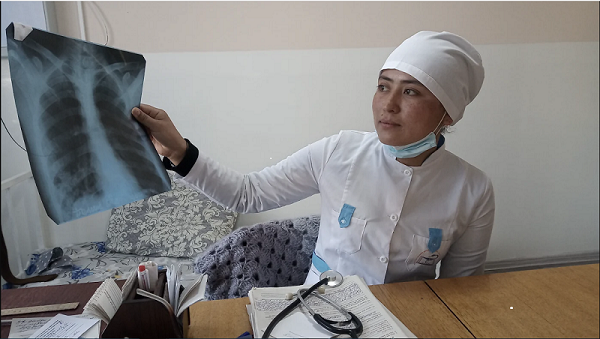 | A DREAM REVIVED Zulfiya Ergasheva had always dreamed of wearing white scrubs and helping people recover from disease. On a serene autumn day in September 2019 in Tajikistan’s mountainous Panjakent, Zulfiya was celebrating her first month in the nursing department of a local medical college. However, her spirit was broken when she noticed her health was deteriorating. Zulfiya experienced a severe loss in energy and strength, and she started to suffer from symptoms similar to those her brother had felt— cough, weight loss, and night sweats. Zulfiya’s brother, Ismoil, was being treated for drug-resistant tuberculosis at the time. Zulfiya went to see a doctor and after a series of tests, was also diagnosed with drug-resistant tuberculosis. |
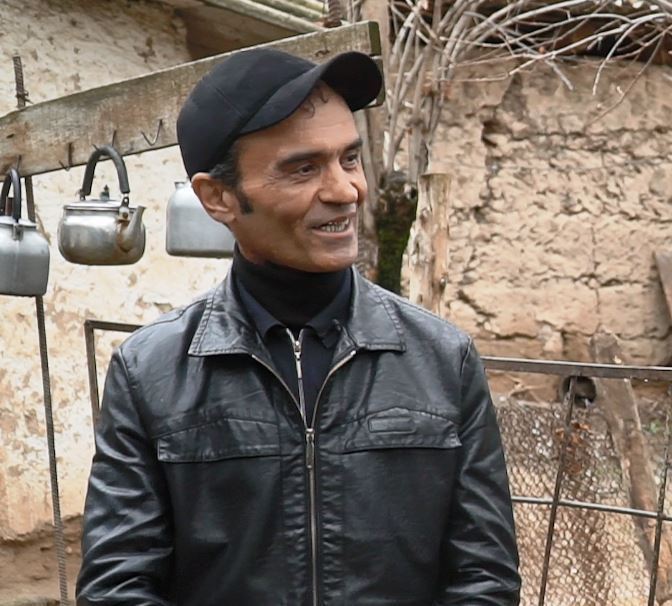 | UNBROKEN BY TB AND STIGMA, UMARALI HELPS OTHERS “TB harms the body, but the attitude and words of people who were your friends before the illness causes a hundred times more pain to your soul,” said Umarali Nabiyev. Fifty-year old Umarali Nabiyev knows both the physical pain and emotional trauma of TB. The stigma associated with having TB in Tajikistan can lead to adverse treatment outcomes. Due to a limited understanding of the cause and effective curative methods, friends and family can often avoid TB patients and shame them. The stigma contributes to delays in seeking treatment and treatment non-compliance. Umarali has had the disease twice. https://usaidcentralasia.exposure.co/unbroken-by-tb-and-stigma-umarali-helps-others |
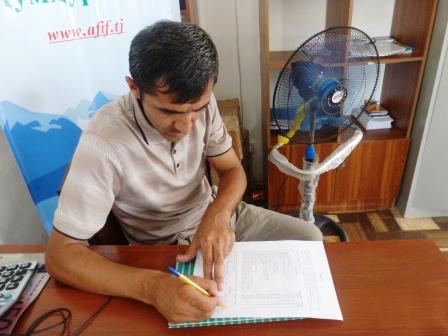 |
A NEW PATH FORWARD Mehrubon, a 42-year old man, lives in a remote village Yol of the Shamsiddin Shohin district in Tajikistan. When he was 18, an incident forced him to leave the country and become a labor migrant in Russia where he worked as a loader in a store. While in Russia in 2001, Mehrubon was put on the federal wanted list in his native town, and in 2002 he was deported from Russia. Upon arrival in Tajikistan, he was admitted to a colony, a Bokhtar city’s prison. https://www.usaid.gov/tajikistan/program-updates/sep-2021-new-path-forward . |
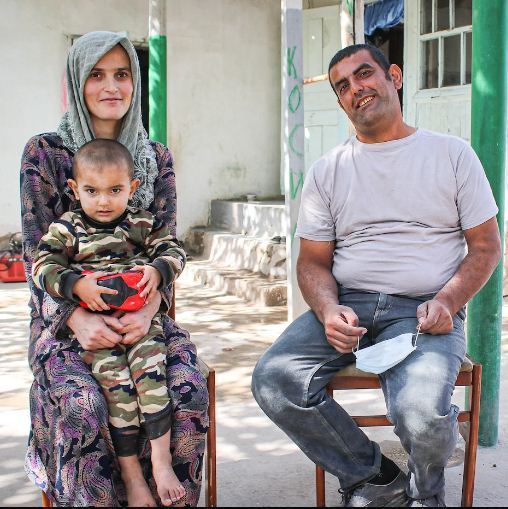 | HELPING PATIENTS FIND PERSEVERANCE
https://usaidcentralasia.exposure.co/helping-patients-find-perseverance |
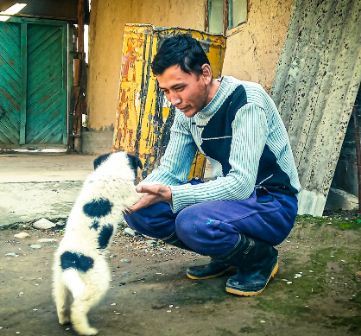 | HOPE IN A DARK TIME Ismoil Oblonazarzoda, a 30-year-old handyman from the Panjakent district in northern Tajikistan, first noticed troubling symptoms in late 2018. He was sweating at night, easily fatigued, and visibly losing weight. In early 2019, he received the staggering news that he had drug-resistant tuberculosis (TB). |
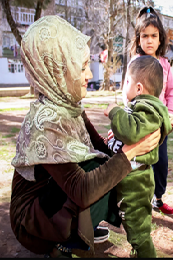 | A CHAIN OF GOOD DEEDS When Shahlo Rahmonova received a diagnosis stating she had drug-resistant tuberculosis, her life changed abruptly. Due to misconceptions about tuberculosis, Shahlo faced shame and abandonment. However, she later found the strength to inspire others to fight TB and with the support of the USAID Eliminating Tuberculosis in Central Asia Activity, Shahlo contributed to the wellbeing of her community and inspired hope. Shahlo Rahmonova is a 32-year-old mother of two children from the Norak district of Tajikistan. Following a common Central Asian tradition, Shahlo's parents arranged her marriage. |
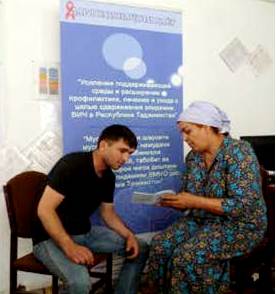 | After the death of my mother, I began to spend a lot of time with older guys who smoked nasvai, cigarettes ... None of my family members forbade me to communicate with older boys. It was interesting for me to be with them. I noticed that in addition to cigarettes and nasvai, they smoked something secretly from everyone, gathering separately. It became very interesting to me and I wanted to join them. At first, I have started smoking cigarettes, after a few months I switched to nasvai. |
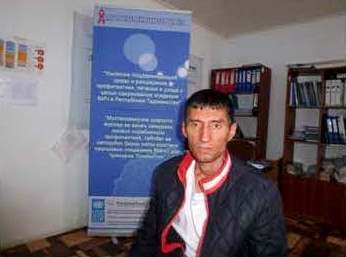 | “Poor mom could not stand my pain and started looking for heroin for me. She asked drug users for filters and syringes ”- tells Talabsho. His mother met a familiar person by chance among migrants, whom his son often used to take heroin together. He told his mother about the organization, that helps drug users and about the OST program.
|
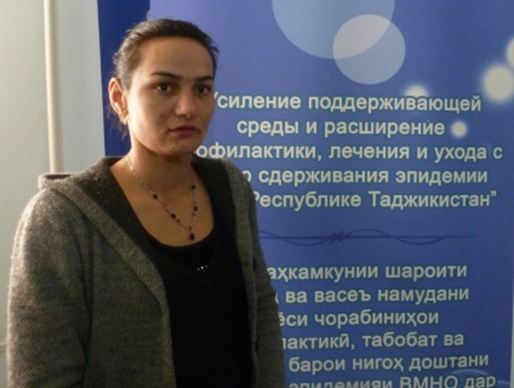 | “When I learned that my stepfather was not my own father, I stopped seeing him as my father. I started spending more time with girlfriends and their boyfriends. After school, the friends of my classmate rode us in their cars, we had lot of fun, and we felt ourselves like adults. I started to come home later and less often. When I studied at school, in the same ninth grade a boyfriend of my classmate raped me. My Mom did not know anything. Later I found out that I got pregnant. In a panic, I began to call to that person and told him about my pregnancy. Mom heard my conversation,” started to tell her story Gulrukhsor. |
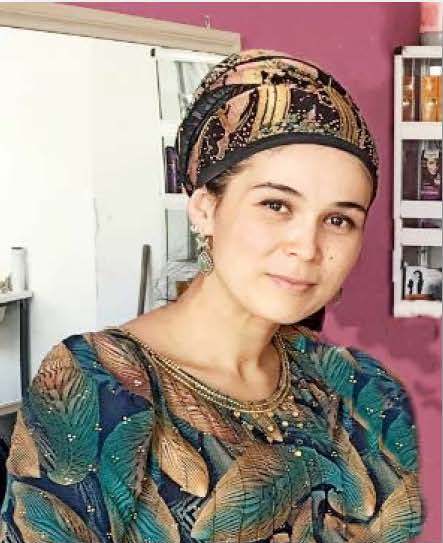 | For the first time Nazokat married when she was 20 years old. However, after three months of constant domestic violence and humiliation in her husband's family, she was forced to divorce. Nine years later Nazokat met her second husband, who seemed quite a decent person. Her elect one met with her parents and promised to make their daughter happy. Having received parental consent, he took Nazokat to Moscow to live there. In the beginning, everything was good, Nazokat’s husband worked, took care of the family. She thought she was the happiest woman in the world. However, Nazokat's happiness did not last long. Once a woman came to her home, introducing herself as the wife of her husband. It turned out that her husband had a wife and five children. |
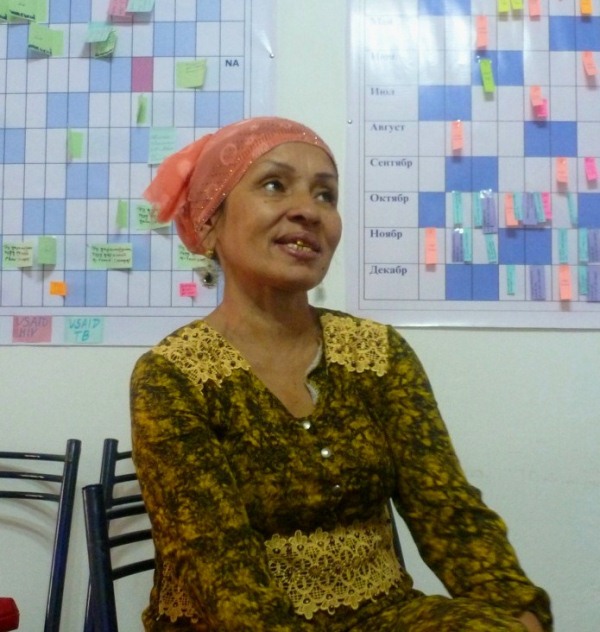 | In 1995, Zebo left to Russian Federation for earnings with her small kids after a divorce. She got employed in the café first as dish-cleaner and then started to help on the kitchen as an assistant to chef. She had a special taste and talent for making salads and second course meals. Zebo organized her kids to be enrolled to the kindergarten and seemed life was getting better. Later, when the children went to school, Zebo was able to accumulate a small capital, opened her own fast food kiosk, where she cooked and sold: cutlets, pancakes, pies and sweets. But it was difficult to live in a foreign country and bring up children. |
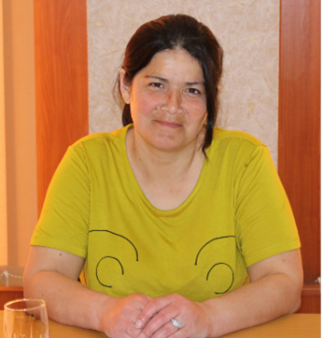 | «In childhood me and my brother had to undergo a terrible ordeal. My father often consumed drugs and my mother worked as cleaner. Since our mother earned little, and we often lacked money, she went to Russia to work. After sometime of my mom’s departure, my father was sent to prison. I was the oldest among 4 sisters and brothers and I had to take responsibility for their upbringing," says Mavzuna. At that time, Mavzuna was a nine grade school student. They did not have money for food, my mother rarely sent money. Because of the need, Mavzun dropped school and decided to find a job to feed her brothers and sisters. |
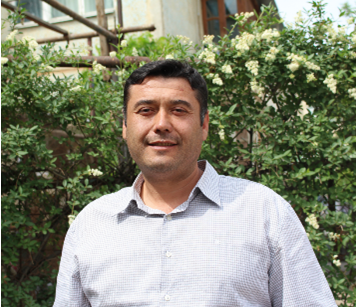 | In 2003, Osim returned to Khujand and got married. They left for Moscow together with his wife. They had two children. Osim began to earn a lot of money there. On one of the parties he was offered to taste heroin. First, he refused, but then for the sake of interest and not to look weak, he tried it. And then, like with all the "beginners", as they say "dashing trouble is the beginning". Osim started to use drugs on a regular basis. |
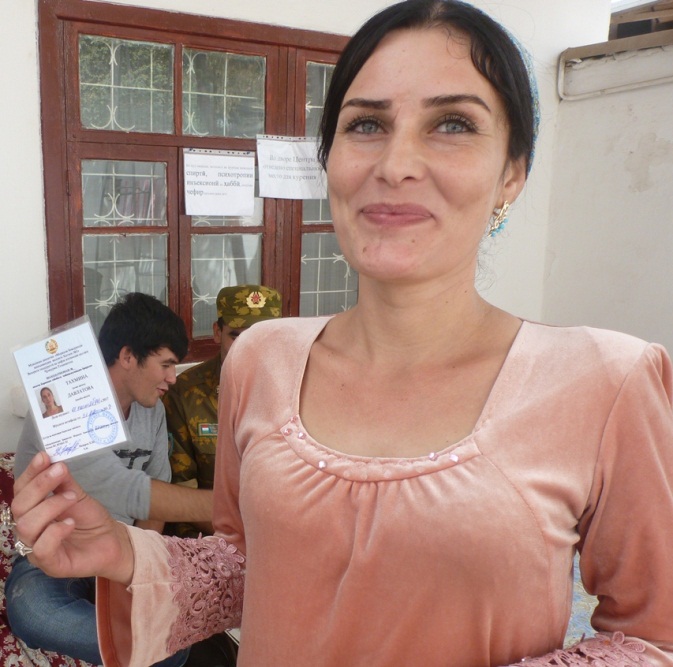 | "When I was a four year grade student, my parents already had got five children, which is a usual case in Tajik families in rural areas. Due to frequent childbirths and burdensome care of all five young children, my mother fell seriously ill. I had to quit my school and take the burden of care for the family to my shoulders"- started her story Tahmina. |
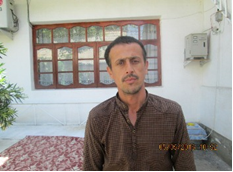 | Idimat, as many other convicts in Yavan prison, also could take part in the HIV training. Having interested with the information received, after training, Idimat expressed his will to get HIV counseling and express tests. Given that the outcome of his express test was positive, he was offered to make a blood test for a detailed examination. Further tests have confirmed that Idimat had HIV. During the post-test counseling, Idimat calmly accepted his HIV-positive status since he understood very well that this was the result of the injecting drug use before imprisonment. |
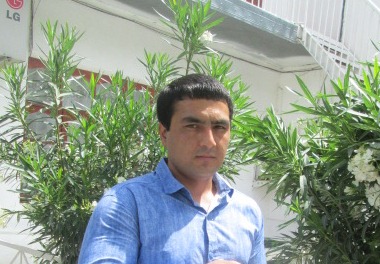 | Ulugbek started to use drugs when he was 17. Many years ago he was convicted for 12 years. In March 2016 Ulugbek got released as a result of the amnesty. Social workers from USAID HIV React Project prepared Ulugbek for the release and further meeting with the reality. |
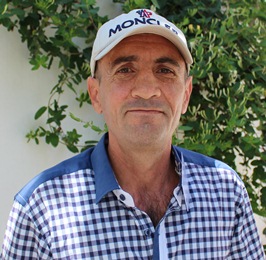 | «When I came back from Russia, I could not believe that I would be able to live in Tajikistan. Family did not accept me and did not communicate with me. No one was waiting for me here and I felt like I would bring no good to anyone. Due to this USAID HIV React Project and its staff, I got new friends, who are always here to help and I got back my faith in kindness and responsiveness. I am very grateful to them that I could get back my family again» – says Murod. |
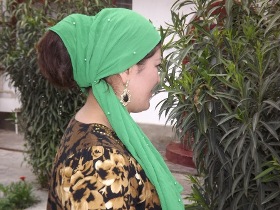 | In 2011, Farida, who has not suspected anything, suddenly learned about her HIV+ status. Four years later, Farida started to take ART. Having felt giddiness and constant sickness, she stopped getting vitally important treatment. Farida did not respond to doctors’ advises and was reluctant to continue a treatment. Twenty eight years old, unemployed woman, mother of two children, Farida wanted to work and be surrounded by people and forget about HIV. In her native district of Bokhtar, she faced difficulty with employment opportunities as many other women did. |
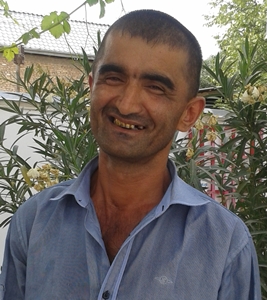 | "I've heard a lot about methadone, but I did not believe that this medicine could help me, because my "street mates" have told about its side effects. In my communication with social workers from "AIDS Foundation East West-Tajikistan" I received answers to my questions. They told me everything about the OST program and all aspects of methadone intake, "says Mahmad. Before his participation in the methadone substitution treatment program, Mahmad always got problems in his family. “To be honest, I have not even thought about my family and my three kids. I was just busy thinking how to find my drugs” Mahmad continues his story. |
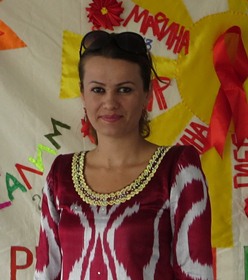 | "HIV-positive women primarily need psychological and social support. Usually the relatives of husband and the parents of HIV-positive women kick them out of the house, once they got to know about their HIV status. Cooperation efforts with the public services we provide women with de-manded social and legal services in crisis situations"- says Takhmina Khaydarov, the head of the" Tajik network of women living with HIV ": |
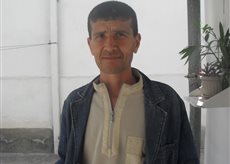 | Hokim was one of the successful cotton farmers in Khatlon region of Tajikistan. He managed his own farm with a total area of 12 hectares of land. All members of the Hokim family worked on this farm. In 2004, Hokim handed over the management of the farm to his cousin, partly supervising the work and financing the farm. Leaving the management of his business Hokim, like many young people in those years, actively used marijuana. Without supervision, the farm fell into decay and got into numerous debts. Constant conflicts with creditors and relatives, inability to cope with the current situation and financial difficulties pushed Hokim to use heroin. |
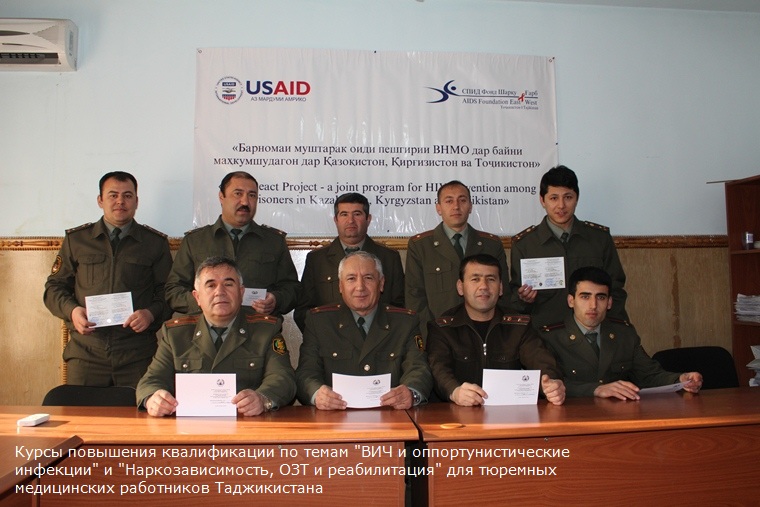 | “Many international organizations conduct expensive and short-term workshops, which are ineffective and cannot significantly influence the level of professional knowledge of specialists. Professional development training courses allow doctors who work in detention institutions to |
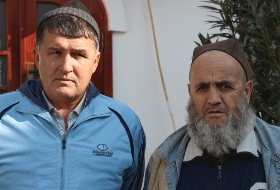 | Sharifbek Safarov (on the left) is a 54 years old man. He is a master of sports in national wrestling, a six-time champion of Tajikistan, a candidate for master of sports in judo. He worked as a coach for many years. Difficult economic situation in the country, lack of stability in times of civil war (1992-1997) and drugs that flowed from neighboring Afghanistan contributed to the fact that many young men, including Sharifbek, started using heroin. |
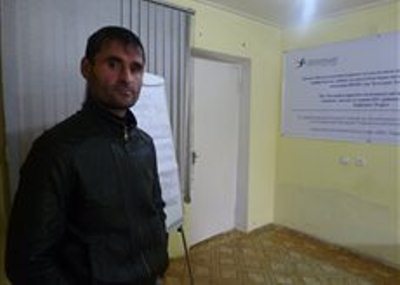 | “Having learned about my illness, my brothers and sisters began to avoid me, tried to stay away from me and did not talk to me. When I got sick with tuberculosis, they kicked me out of the house and put me in a pantry with no floor, ceiling, doors or windows. My family did not give me any food and did not allow taking water from tap. The medicines provided by the AIDS center should be taken after meals, but I did not take it, because I had nothing to eat. I was starving. Day by day I was getting worse and worse. In a word, I was waiting for my death”- says Rustam. |
Questions and answers
- Friday, 17 March 2023Hi. Can I get HIV if dry blood on pants touches genitals? Will it have any microtrauma on genitals? Also, pants were in a drawer for two days, does HIV ....
- Friday, 10 March 2023Hi. Can I get HIV from dried blood? I went to the lab for blood checking and the lady drew my blood and accidently scratched the plastic tray before taking ....
- Saturday, 25 February 2023Hi. It’s me again. If that HIV blood on pants was 3 days old, could it still be alive when it comes in contact with genitals?
- Wednesday, 22 February 2023Hi. Why is it impossible to get HIV if dried blood on pants gets in contact with genitals?
- Wednesday, 15 February 2023Hi. Can I get HIV if blood stained on pants touches genitals?
- Friday, 17 March 2023Hi. Can I get HIV if dry blood on pants touches genitals? Will it have any microtrauma on genitals? Also, pants were in a drawer for two days, does HIV ....
- Friday, 10 March 2023Hi. Can I get HIV from dried blood? I went to the lab for blood checking and the lady drew my blood and accidently scratched the plastic tray before taking ....
- Saturday, 25 February 2023Hi. It’s me again. If that HIV blood on pants was 3 days old, could it still be alive when it comes in contact with genitals?
- Wednesday, 22 February 2023Hi. Why is it impossible to get HIV if dried blood on pants gets in contact with genitals?
- Wednesday, 15 February 2023Hi. Can I get HIV if blood stained on pants touches genitals?
- Archive
- Monday, 28 December 2020Hello. I feel chest pain, but there is no cough or fever. But there is phlegm and a little red color. Is this a symptom of tuberculosis?
- Archive
- Thursday, 01 November 2018Hello. I am a client of an OST program with hepatitis C status. This year, at the end of May I had an operation in the hospital on opening phlegmon ....
- Archive
- Wednesday, 06 January 2021Hello. The last 4-5 years, my finger and my nail hurt, my fingers swell and shed skin when I washing, they burn badly. I got treatment but did not recover. ....
- Thursday, 01 November 2018Hello! What is the peculiarity of sexually transmitted infections?
- Archive
- Thursday, 01 November 2018Hello. Please tell me if there are legal restrictions to outreach workers who do not have a medical education, on intramuscular injection of Naloxon to the client in the case ....
- Archive
- Monday, 26 July 2021Hello. I have had infertility for 2 years now, diagnosed with endometriosis of the uterus. What kind of disease is this, please tell me.
- Wednesday, 30 December 2020Good afternoon. My wife and I have children and we would like to use condoms instead of using the uterine spiral. Tell me what is better to use. If the condoms ....
- Friday, 24 July 2020Muchas gracias? Como puedo iniciar sesion?
- Thursday, 01 November 2018My name is Kristina, I am HIV positive, and I receive ARV. In 2017, I gave a birth to a child and doctors did not do cesarean operation, I gave ....
- Archive
The number of provided answers per topics:
- 2637НIV and AIDS
- 668Tuberculosis
- 832Viral Hepatitis
- 407Drug addict
- 973STIs and skin diseases
- 540Legal issues
- 658Gynecology
- 234Psychology
